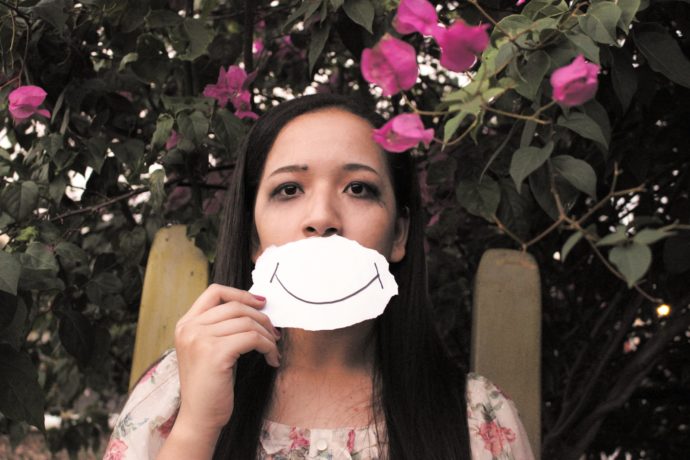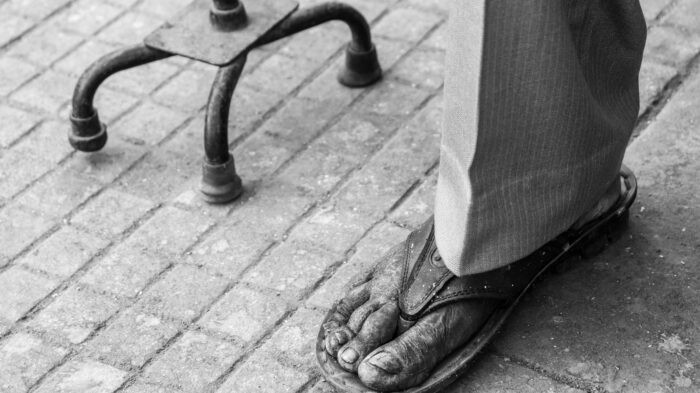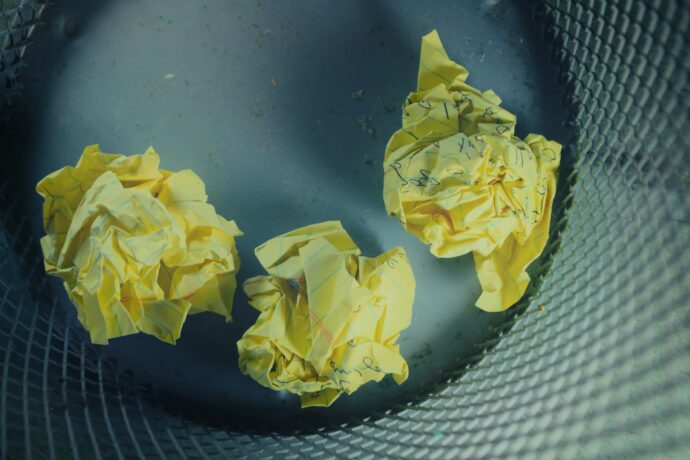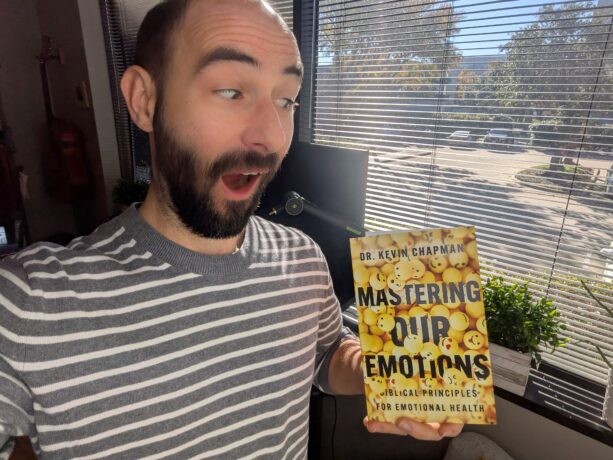
As a clinician and person of faith, I really wish all the stories I tell involved an easy resolution. That’s not the case, nor is it a reality. It is important for us as clinicians and people of faith to hear of the hurts, pains, and in-process stories that can remind us: it’s a process– and that’s okay- even when we’re not where we want to be.
Enter Alexandra. I first got to know her through her @Alexandraisobsessed account on Instagram. She does cool advocacy and has consistently great posts. One day we were talking OCD advocacy, and she told me she’s breaking into writing more. We connected as I took breaks on my 100° summer run in Texas- the body keeps the score of that discomfort, let me assure you. 😀
As we exchanged messages, what came out of that, in essence, was both a new friendship and the following personal story. Lo and behold, I just discovered that she got published in a source I hope to be published in someday (way to go, Alexandra!), the OCD Newsletter by the IOCDF, Winter 2021 (Volume 35, Number 4). Furthermore, her podcast with Stuart Ralph of The OCD Stories was released yesterday. She is now officially a published writer and podcast guest. 🙂
The story is still raw and in process, not particular advice or recommendations for anyone today. Sometimes we need to pause and sit in the moment- to sit with the story and listen.
Alexandra led the charge with her vulnerability. And oh yes, before the APA just added “CPTSD” officially to the manual, you can see from her story how she was already pioneering in using it (well before this post). I’m proud of her for leading the charge in many ways.
~Justin K. Hughes, MA, LPC
Religious Trauma
by Alexandra Reynolds, OCD Advocate
Love and Values on the Outside, Fractured on the Inside
My experiences with religion are typical for a first-generation Puerto Rican living in the United States. As a child, I was baptized and raised in the Roman Catholic Church. Both sides of my family are traditional and consider the Church their anchors; statues of the Virgin Mary, rosary beads, and paintings of saints were all common. Church and God were to be obeyed.
My parents often spoke about God and how important it was to obey the commandments. They would take my brother and me to church every Sunday and were active in the community. When I was old enough, my parents signed me up to be an altar server at the church. From the outside, it seemed that I was growing up in a home full of love and good values. On the inside, my relationship with religion had already begun to fracture.
Full of Anxiety and Daily Suffering
I was always full of anxious thoughts and ruminations about topics most would deem too heavy for a kid. I worried non-stop about harm coming to my Mom or brother. About wars and my health, my nights were spent lying awake contemplating my existence, and death. Nightmares and sleep terrors were my reward when I finally fell asleep. Religion became the fodder feeding my anxieties. My home life was a war zone. Suffering through chronic abuse I parented my brother and myself and learned to become small in order to survive.
Spiritual Abuse
My first memories of religion come from my father. He often used bible verses to keep my brother and me in our places. Things like: Children are to be seen and not heard, they come after marriage and are supposed to be dutiful and obedient. There was never room for error. As I grew older and was able to follow and understand the stories in Church, I believed that God was supposed to be loving and compassionate. That He helped the downtrodden and those who needed Him most. I began to pray regularly and learned to recite the rosary. I was convinced that, if I prayed enough, God would send someone to save us.
Food for OCD Rituals
Prayers and religion became something new for my OCD to latch onto. My prayers grew longer, and I prayed more often. I really started to think that they might actually be able to influence the present. Fear that if I thought the wrong thing something bad would happen to my Mom or brother grew, and I’d try to cancel out the bad thoughts with a Hail Mary or a prayer. Anxiety piled atop anxiety.
Healing Is Complicated
One day, I gave up praying. I felt that my prayers weren’t heard and I’d been abandoned by God. I wondered if we were worthy of being saved. How could He let innocent children suffer the way my brother and I had if He loved everyone? That was the beginning of my break with religion. I couldn’t bring myself to pray anymore. I stopped caring about the Church and grew into an angry and rebellious teenager. I was angry with my parents, angry with every adult who’d ever failed me, and angry with God for being nothing but an empty promise. I carried this anger with me into adulthood.
At times, I would toy with the idea of returning to Church, or at least spirituality, only to be met head-on by my own trauma and OCD. I would begin to obsess over the existence of God and compulsively pray. The ruminations and constant questioning were too much to handle so I developed an attitude of indifference. I wish that I could say that my attitudes toward religion softened with time, but they didn’t. There are some things in life that don’t get better with time. They require professional help in order to help you move forward. I hesitate to use the word “heal” here because, in my experience, healing is complicated and an ongoing process.
What’s Worked For Me So Far
What really happened was that I got into therapy with a Trauma Specialist alongside my OCD Specialist. Together, they have worked through parallel treatment to help me learn to cope with my CPTSD symptoms and navigate the marks trauma has left on my mind and heart while also addressing my Religious/Scrupulosity OCD. With their support and knowledge, I have been able to identify religion as both part of my trauma and OCD and slowly work to change my relationship with it. I am not at the point where I can say that I am religious, but I am learning to examine its place in my life with it from a place of openness and curiosity. Right now, I think that’s perfect for me.
~Alex








Leave a Reply